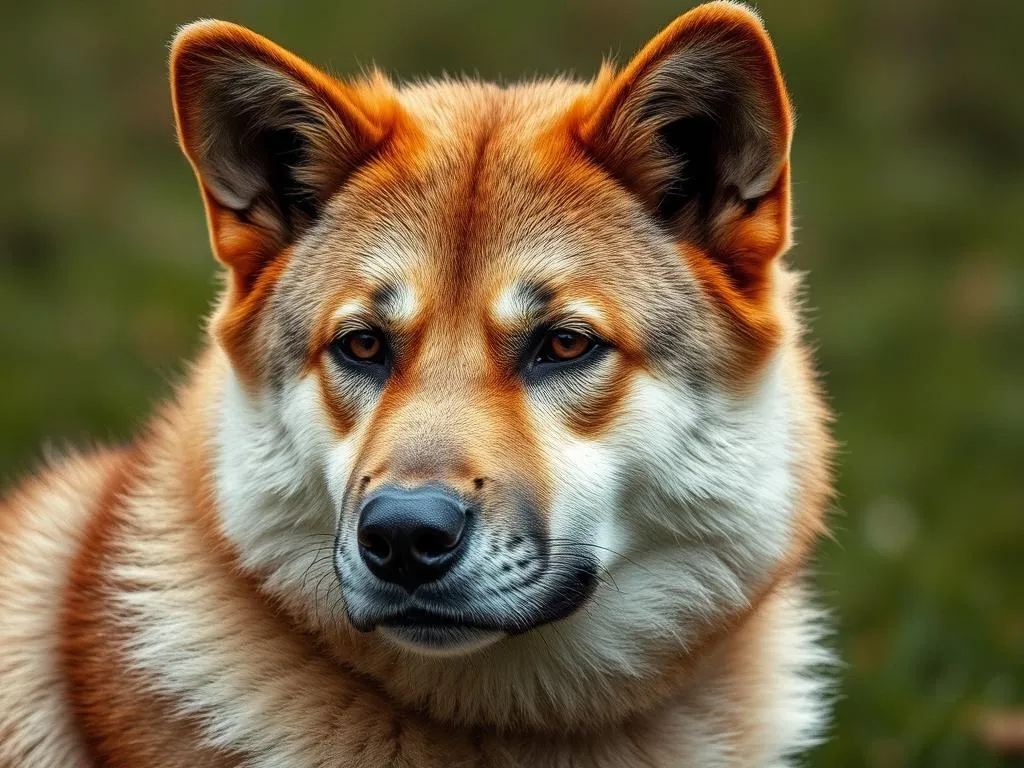
It’s crucial for dog owners to understand the health care needs of their furry companions, particularly when it comes to specific breeds like the Jindo. This beautiful and loyal breed hails from Korea and is known for its unique characteristics and strong bond with its owners. By exploring the Jindo lifespan and ways to ensure their health, we can enhance their quality of life and ensure they thrive for years to come.
Understanding the Jindo Breed
Origin and History
The Jindo breed originates from Jindo Island in South Korea, where they were historically used for hunting and guarding. They are deeply rooted in Korean culture, symbolizing loyalty and bravery. Jindos were recognized in 1962 as a national treasure in South Korea due to their unique traits and historical significance. These dogs have been bred for centuries, which has contributed to their intelligence, agility, and strong instincts.
Physical Characteristics
Jindos are medium-sized dogs, typically weighing between 30 to 50 pounds and standing about 18 to 24 inches tall at the shoulder. Their double coat is designed to withstand various weather conditions, featuring a soft undercoat and a harsher outer coat. The most common colors include white, fawn, brindle, and black, often with distinctive markings. Their erect ears and bushy tails give them a striking appearance, making them easily recognizable.
Temperament and Behavior
Known for their independence and loyalty, Jindos are often described as strong-willed yet affectionate. They form deep bonds with their families and can be reserved around strangers. Socialization from an early age is essential to ensure that they develop good behaviors. Jindos are intelligent and require mental stimulation to prevent boredom, which can lead to destructive behaviors.
Jindo Lifespan: How Long Do They Live?
Average Lifespan
The average lifespan of a Jindo ranges from 12 to 15 years. This longevity can be influenced by several factors, including genetics, environment, and the level of care provided. Like many breeds, a well-cared-for Jindo can live a longer, healthier life.
Common Health Issues
While Jindos are generally healthy dogs, they can be predisposed to certain health issues. Some of the common ailments include:
- Hip Dysplasia: A genetic condition where the hip joint doesn’t fit properly into the hip socket, potentially leading to arthritis.
- Skin Conditions: Allergies and other dermatological issues can affect Jindos, often requiring specialized treatment.
- Obesity: As with many breeds, maintaining a healthy weight is essential to prevent various health problems.
Regular check-ups can help catch these issues early, allowing for timely intervention.
Signs of Aging in Jindos
As Jindos age, they may exhibit various physical and behavioral changes. Owners should be aware of signs such as:
- Decreased energy levels
- Changes in appetite
- Difficulty in mobility or stiffness
- Increased anxiety or confusion
Regular veterinary check-ups become increasingly important as your Jindo ages. These visits can help monitor health changes and address concerns proactively.
Essential Health Care Practices
Nutrition
Proper nutrition is a cornerstone of health care for Jindos. A balanced diet tailored to their age, weight, and activity level is crucial for maintaining their health. Here are some tips:
- Puppy Stage: High-quality puppy food rich in protein and nutrients to support growth.
- Adult Stage: A balanced diet with appropriate calories to maintain a healthy weight.
- Senior Stage: Lower-calorie diets that still provide all necessary nutrients but are easier to digest.
Consult with your veterinarian to find the best diet for your Jindo’s individual needs.
Regular Vet Visits
Routine veterinary check-ups are essential for maintaining your Jindo’s health. It’s recommended to schedule visits at least once a year, or more frequently for older dogs. During these visits, vaccinations and preventative care, such as heartworm testing and flea/tick treatments, should be addressed.
Exercise and Mental Stimulation
Jindos are active dogs that require regular exercise to stay healthy. Aim for at least 60 minutes of exercise daily, which could include walks, playtime, or agility training. Additionally, mental stimulation is vital; consider activities like puzzle toys or obedience training to keep their minds sharp.
Preventative Care for Jindos
Vaccinations and Preventative Treatments
Vaccinations are crucial for protecting your Jindo against various diseases. Essential vaccinations include:
- Rabies
- Distemper
- Parvovirus
Preventative treatments for parasites such as fleas, ticks, and heartworms are also important. Regularly consult your vet about the best schedule and products for your Jindo.
Dental Care
Dental health is often overlooked but is vital for overall health. Poor dental hygiene can lead to gum disease and other health issues. To maintain your Jindo’s dental hygiene:
- Brush their teeth regularly, ideally daily.
- Provide dental chews to help reduce plaque buildup.
- Schedule professional dental cleanings as recommended by your vet.
Grooming Requirements
Jindos have a thick double coat that requires regular grooming to prevent matting and reduce shedding. Here are some grooming tips:
- Brush at least once a week, increasing frequency during shedding seasons.
- Bathe as needed, typically every few months or when they get dirty.
- Pay attention to their ears, eyes, and nails, keeping them clean and trimmed.
Enhancing Longevity and Quality of Life
Creating a Safe Environment
A safe home environment is crucial for your Jindo’s well-being. Here are some tips:
- Indoor Safety: Keep hazardous materials out of reach and secure any loose electrical cords.
- Outdoor Safety: Ensure your yard is fenced and free from toxic plants.
- Travel Safety: Use a crate or dog seat belt when traveling in a vehicle.
Building Stronger Bonds
Spending quality time with your Jindo strengthens your bond and promotes mental health. Engage in activities such as:
- Regular training sessions to reinforce good behavior.
- Playtime with toys that encourage interaction.
- Socialization with other dogs and people to build confidence.
End-of-life Considerations
As your Jindo ages, it’s important to prepare for the eventual end of life. Recognizing signs that your dog may be nearing this stage can help you make informed decisions. Signs may include:
- Persistent pain or discomfort
- Significant changes in behavior or appetite
- Difficulty in movement
Discuss palliative care options with your veterinarian, and consider your Jindo’s quality of life when making decisions.
Conclusion
Understanding the Jindo lifespan and implementing proactive health care practices can significantly enhance your dog’s well-being and longevity. By focusing on nutrition, regular veterinary care, exercise, and preventative measures, you can ensure your Jindo lives a happy, healthy life. Responsible ownership and a commitment to your dog’s health care will lead to a fulfilling companionship that lasts for many years.









